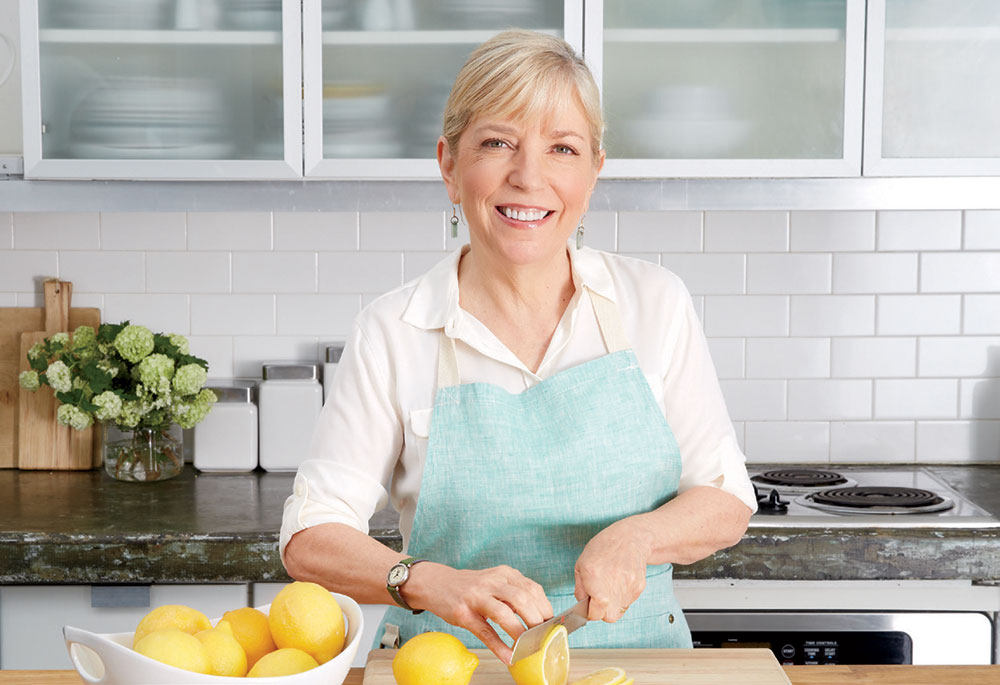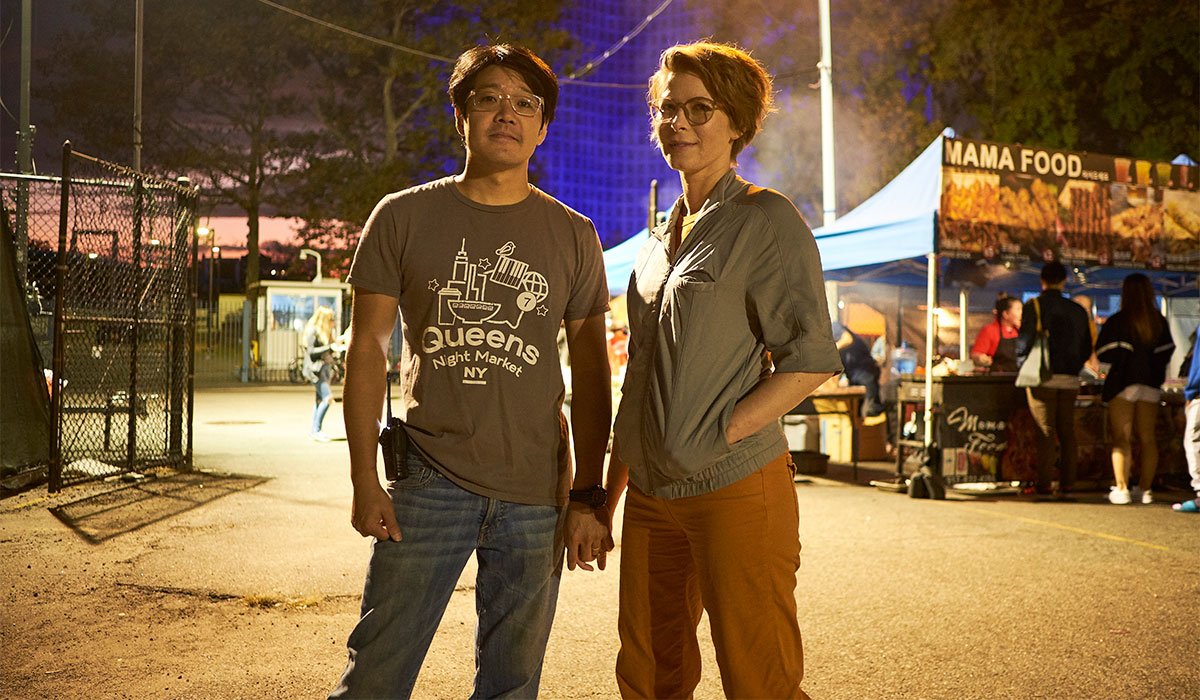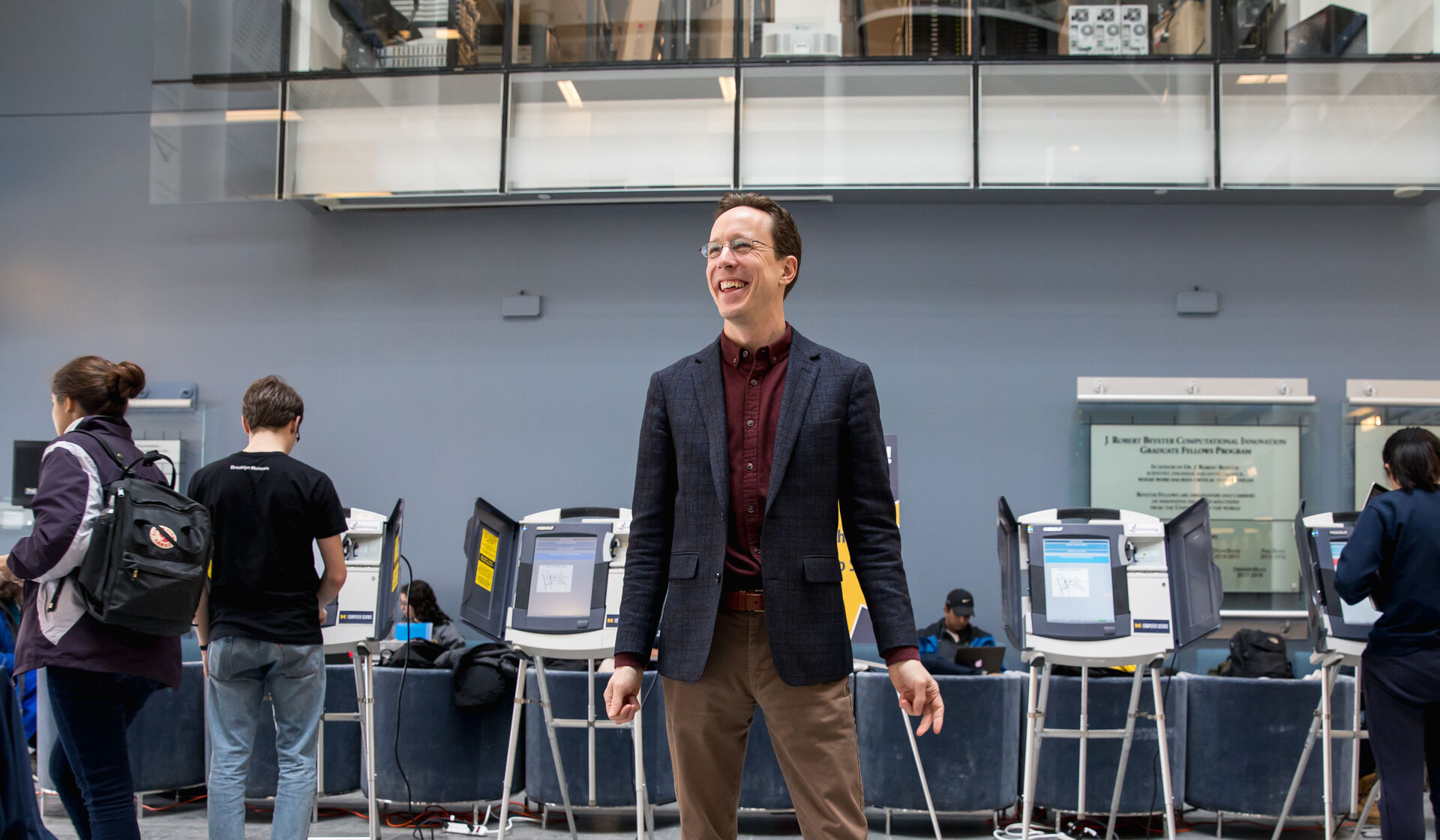Five years ago, John Wang, ’03, founded the Queens Night Market in New York City, a spring-through-fall, open-air food festival that celebrates the diversity and heritage of the borough. Open every Saturday evening, the market consists entirely of international food vendors. Though its sixth season remained postponed as of press time due to the COVID-19 pandemic, you can now prepare many of the dishes served at the market at home.
Wang, a former lawyer, co-wrote the cookbook “The World Eats Here” (The Experiment, 2020) with his wife, Storm Garner. The book includes recipes from 40 of the more than 90 countries represented at the market. It also includes stories behind each vendors’ culinary creations.
I recently reached out to John and Storm to learn more about the book, the market, and the help they gave during the height of the pandemic.
MOULTON: Queens had one of the highest numbers of COVID-19 cases in New York City. Despite not being able to open the market, how were you able to feed people?
WANG: In late March, I partnered with the Office of the Queens Borough President and the Queens Economic Development Corporation to create the Fuel the Frontlines initiative. We raised funds to hire local businesses and Queens Night Market vendors to provide thousands of meals for health care workers on the front lines who are risking their lives for our collective health and safety. Over the first four weeks of the program, we managed to raise almost $100,000 and provided almost 10,000 meals. It is amazing how many of our vendors have answered the call to help at a steep discount to what they would normally charge for catering, no less. They have been spectacular at quickly turning every donated dollar into a nutritious meal.
MOULTON: What inspired you to start the Queens Night Market?
WANG: The inspiration was my love affair with the night markets in Taiwan, where I would spend time as a kid during my summer vacations. I wanted to create something that would appeal to every New Yorker. First and foremost, it needed to be affordable. Since we’ve started, we’ve tweaked the $5 price cap on food and now have some $6 exceptions. It also needed to have diverse buy-in and representation. A quick scan of vendors and attendees at the Queens Night Market shows a real cross-section of the city. People, families, strangers just look like they are having a great time. There is this relaxed aura, free of social anxieties and barriers.
GARNER: John created such a laid-back, festive environment with the market. You feel like whoever is sitting next to you at a picnic table is like a fellow guest at a wedding. There is an inherent trust. You talk about the food, and soon you are making friends and learning about food traditions and life stories that are nothing like your own.
MOULTON: Why did you and Storm decide to write “The World Eats Here”?
WANG: It is something we had thought about for a few years. The book is a celebration of the vendors who make the Queens Night Market special. It shares their stories and recipes, their passion, talent, hard work, and backgrounds — everything that makes the Queens Night Market what it is. While it has been a success by most accounts, there is no guarantee it is here to stay. We hope that “The World Eats Here” will forever document a moment in time, a snapshot of vendors and their journeys, while also preserving some of the context and the stories that brought them here.
MOULTON: This book draws from the oral history master’s thesis Storm is working on at Columbia University. Tell me about that.
GARNER: I adapted my long-form interviews from the “Queens Night Market Vendor Stories” oral history project into the biographical profiles of the chefs in the book. I wanted to document the incredible diversity of life paths that have somehow coincided at the Queens Night Market. We have so much to learn from each other, and yet it can be hard to get to know someone outside your usual community without a little push. We hope this cookbook will be that push for you at home.
MOULTON: Tell me more about the variety of recipes in the book, which is astonishing and impressive.
WANG: There is a lot of variety. You can test your hand at making huaraches from Mexico, tea leaf salad from Myanmar, biryani from Mauritius, savory cheese pies from Moldova, and beef rendang from Malaysia, to name just five. To date, the Queens Night Market has represented over 90 countries through its vendors and their food. We included recipes from nearly half of those countries in the cookbook.
GARNER: It can be intimidating to look at recipes with names you can’t pronounce and ingredients you’ve never heard of before. If you are an adventurous type, you might be excited by the new food but stop there. Reading the chefs’ own stories about the recipes, in their voice, makes it become a personal connection. The food then opens up a whole world to you.
MOULTON: Can you share one of the vendor stories?
GARNER: Maeda Qureshi, who trained at the Culinary Institute of America and runs The Pakistand at the Queens Night Market, tells her story of growing up in a tight-knit Pakistani community in Brooklyn. During Ramadan, her mother would make a dish like biryani, put it on a plate, and have Maeda give it to a neighbor. Later in the week, “the floating plate” would come back with food the neighbor prepared because “you can’t give an empty plate back to the people that gave you food.”
MOULTON: Is it difficult to find the ingredients?
WANG: Sourcing the ingredients should be a big part of the enjoyment and discovery, like a treasure hunt. Sadly, this pandemic crisis will probably diminish that experience a bit. But it’s amazing what you can get delivered these days, even during these times. There are countless boutique importers and businesses selling everything you could need online. I know some restaurants are now even offering grocery services, so ordering through them might be a great way to support local businesses while also procuring some of the less-common ingredients — but if you can’t find them, we offer more common substitutions.

Cookbook author Sara Moulton (saramoulton.com) is currently the host of the public television show “Sara’s Weeknight Meals.”






